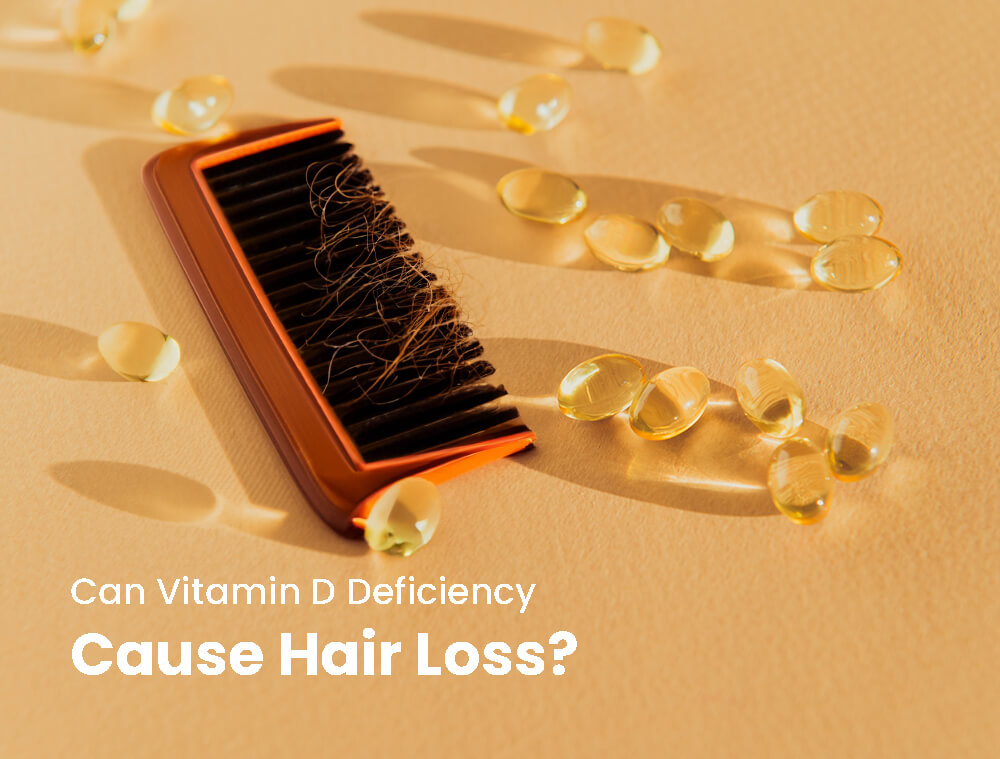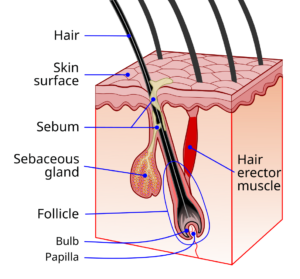
Vitamin D is a crucial nutrient that plays numerous essential roles in our body. It is well-known for its ability to help maintain healthy bones and teeth, support the immune system, and regulate insulin levels. But can a deficiency in this vital vitamin lead to hair loss? This is a question that has been the subject of much debate and research in the scientific community. Let’s delve into the details and discover the relationship between Vitamin D and hair health.
The Role of Vitamin D in the Body
Vitamin D, often referred to as the “sunshine vitamin,” is produced by the body in response to exposure to sunlight. It can also be obtained from certain foods and supplements. This fat-soluble vitamin is essential for the absorption of calcium and phosphate in the body, nutrients that are vital for the development of healthy bones, teeth, and muscles.
Aside from its well-known benefits for bone health, Vitamin D also plays a crucial role in cell growth and differentiation, immune function, and inflammation regulation. It is also involved in the function of many genes that control the cell cycle. Therefore, a deficiency in Vitamin D can have wide-ranging effects on overall health and well-being.
Vitamin D and Hair Growth
The relationship between Vitamin D and hair growth has been the focus of several scientific studies. Hair follicles, the tiny pouches from which hair grows, are highly active and have a high turnover rate. This means they require a constant supply of nutrients, including vitamins, to maintain their growth and health.
Vitamin D receptors are found in the hair follicles, indicating a potential role for this vitamin in hair growth. These receptors are proteins that bind with Vitamin D in the body, allowing it to perform its functions. When these receptors interact with Vitamin D, they can help regulate the growth and differentiation of hair follicles.
The Impact of Vitamin D Deficiency on Hair Growth
Given the presence of Vitamin D receptors in hair follicles, it is plausible to suggest that a deficiency in this vitamin may impact hair growth. Several studies have found a link between low levels of Vitamin D and alopecia, a condition characterized by hair loss.
In one study, researchers found that people with alopecia had significantly lower levels of Vitamin D compared to those without the condition. Another study found that women with hair loss had lower Vitamin D levels than those with healthy hair. These findings suggest a potential role for Vitamin D in maintaining hair health and preventing hair loss.
How to Address Vitamin D Deficiency
If you suspect that you have a Vitamin D deficiency, it is important to consult with a healthcare provider. They can conduct a simple blood test to determine your Vitamin D levels and recommend appropriate treatment options if necessary.
Increasing your exposure to sunlight is one of the most effective ways to boost your Vitamin D levels. However, it is important to balance this with the risk of skin damage from excessive sun exposure. Eating foods rich in Vitamin D, such as fatty fish, cheese, and egg yolks, can also help increase your intake. Vitamin D supplements are another option, particularly for those who have difficulty getting enough from sunlight or diet alone.
Preventing Hair Loss
While addressing Vitamin D deficiency is crucial, it is also important to note that hair loss can be caused by a variety of factors, including genetics, hormonal changes, stress, and other nutritional deficiencies. Therefore, a holistic approach to hair health is essential.
Ensuring a balanced diet rich in essential nutrients, managing stress, and maintaining a healthy lifestyle can all contribute to maintaining healthy hair. Regular scalp massages may also help stimulate blood flow to the hair follicles, promoting hair growth.
While more research is needed to fully understand the relationship between Vitamin D and hair loss, current evidence suggests a potential link. Addressing Vitamin D deficiency may help improve hair health along with providing numerous other health benefits. However, it is important to remember that hair health is influenced by a variety of factors, and a comprehensive approach to overall health and well-being is the most effective way to maintain healthy hair.




